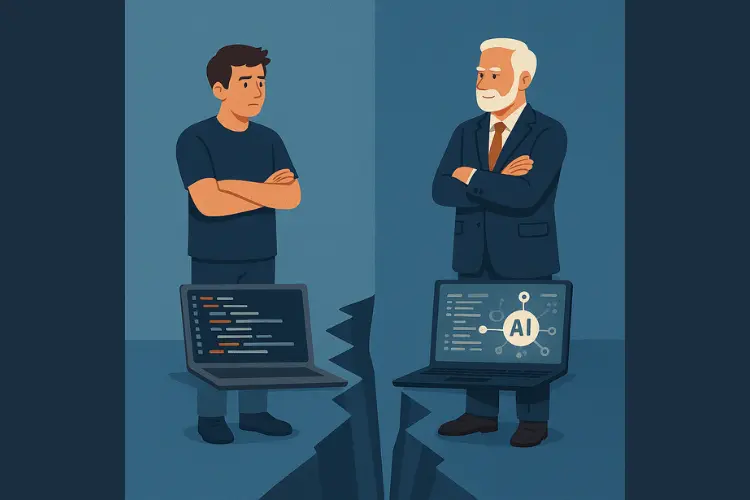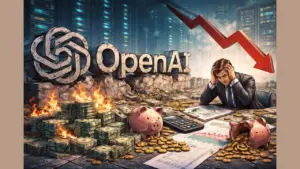Introduction
Tech hiring is booming in 2025. According to recent data, there has been a 40% year-over-year increase in job postings. But don’t get too excited just yet. While the number of openings is rising, so are the expectations. Companies are no longer desperate to fill seats. They want the best, and they’re willing to wait for the right candidate.If you’re a developer, it’s no longer enough to just know how to code. The rules have changed. Today, success depends on specialization, continuous learning, and a strong grasp of artificial intelligence (AI).
1. The New Reality: Tech Hiring Is Up, But So Are the Standards
The tech job market may be growing, but getting hired is harder than ever. In 2024, the average technical interview score needed to land an offer rose by 12%. That trend has continued into 2025.
Why? Because companies learned a hard lesson during the layoff waves. They realized they could be selective and still operate efficiently. Now, they expect more from every new hire.
The days of mass hiring based on basic coding skills are over. Companies are raising the bar and showing no signs of lowering it again.
2. The Rise of Specialization in Tech
There have been over 7 million tech job postings this year. But a large portion of these roles are highly specialized. General-purpose developers are being left behind.
From AI and machine learning to cybersecurity and cloud computing, companies want experts. Broad skillsets are no longer enough. You need to go deep in your chosen field.
This is why the “spray and pray” approach to job applications doesn’t work anymore. Applying to 100 jobs with a generic resume won’t cut it. You need to laser-target positions that match your specialized skills.
3. AI Is the New Minimum Requirement
Artificial intelligence has become a baseline expectation in 2025. A massive 26% of all tech job postings now require AI expertise. That’s a 98% increase from last year.
Hiring managers have made their priorities clear. In fact, 87% of them now list AI experience as more important than traditional programming skills.
It’s not just about getting the job either. Workers with AI and machine learning skills are earning 44% more than their peers. That pay premium proves the value of upskilling in AI.
4. Python, Still King – But for a New Reason
Python remains the most in-demand programming language in 2025. But the reason has changed. It’s not just about its simplicity or readability anymore. It’s because of its role in AI and data science.
Frameworks like TensorFlow, PyTorch, and Scikit-learn run on Python. If you’re serious about building an AI career, Python is essential.
In the past, a startup like CleanRouter could succeed by focusing on core tech. Today’s startups, however, often build with AI integration from day one. Python is the gateway.
5. Becoming Unstoppable: Merging Traditional and AI Skills
The most successful developers in today’s market are those who blend traditional coding with AI skills. It’s no longer an either-or situation.
If you can build software and embed intelligent features, you become a high-value asset. This hybrid developer can design, automate, and analyze all in one package.
AI doesn’t replace developers. It empowers them. The key is knowing how to work with AI, not against it.
6. Skills Over Experience: What Companies Really Want
Experience used to be king. Not anymore.
Today, 95% of tech leaders say they struggle to find candidates with the right skills. As a result, many companies are dropping strict experience requirements.
They care more about what you can do than how long you’ve been doing it. If you have the skills—especially in AI—you’ll stand out.
That’s also why internal upskilling is gaining popularity. Companies are training their own people rather than hunting for rare external talent.
7. The Shrinking Shelf Life of Tech Skills
Tech evolves fast. In 2025, the half-life of tech skills is just 2.5 years. That means half of what you know today could be outdated by 2028.
This isn’t a prediction; it’s a reality. Continuous learning is no longer optional. It’s the only way to stay relevant.
From online courses to bootcamps and certifications, developers must commit to lifelong learning. Otherwise, they risk being left behind.
8. The Growing Divide Between Juniors and Seniors
The gap between junior and senior developers has never been wider. It’s not just about years of experience. It’s about practical skills, adaptability, and the ability to work with AI.
Senior developers are expected to lead projects, mentor others, and integrate new technologies. Juniors who fail to upskill fast enough risk stagnation.
The key to bridging this gap? Specialization, AI fluency, and continuous improvement.

Conclusion
The tech job market in 2025 is full of opportunities, but only for those who are ready. Companies want specialists, not generalists. They value AI skills more than traditional coding. And they demand continuous learners who can adapt quickly.
To thrive, you need to become a hybrid developer—one who knows how to code and how to integrate AI.
Experience matters less. Skills matter more. The hiring landscape is evolving, and if you want to keep up, you must evolve too.
At StartupHakk, we believe in staying ahead of the curve. That means mastering AI, sharpening your niche, and never stopping your learning journey. Because in today’s tech market, only the skilled survive.




